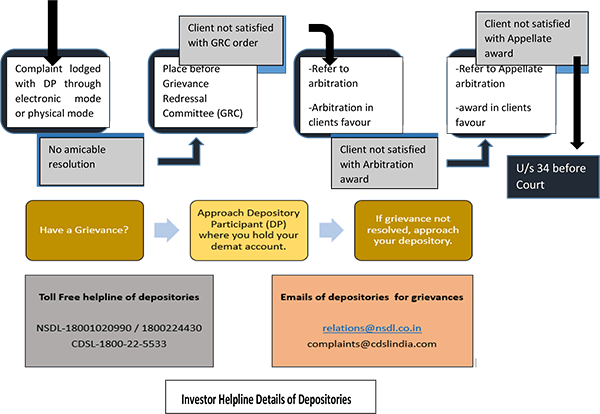You’ve likely seen news headlines referring to the NIFTY 50 quite frequently. This term appears regularly in newspapers and TV channels, where NIFTY 50 charts are shown almost daily. Investment experts often mention the NIFTY 50 while discussing stock market trends. But what exactly is this NIFTY 50 that is constantly talked about?
Specifically, the NIFTY 50 is India’s most important premier stock market index. The NIFTY 50 Index, managed by the National Stock Exchange (NSE), derives its name from a blend of “National” and “Fifty” (Nifty).
Unlike the Sensex, which tracks a specific set of companies, the NIFTY 50 focuses on selecting 50 high-performing company stocks. This index represents most of the top sectors of the Indian economy, providing broad exposure to the Indian market within a single, streamlined portfolio.
The NIFTY 50 is owned and managed by India Index Services and Products Ltd. (IISL), India’s first specialised company focused primarily on developing and maintaining indices.
What is NIFTY 50?
The National Stock Exchange Fifty (NIFTY 50) is responsible for tracking the performance of the 50 Blue-Chip companies across various sectors in the Indian economy like finance, technology, consumer goods, and pharmaceuticals.
What are Blue-Chip Companies?
Blue-chip companies are large, well-established, financially stable companies boasting a vast history of steady growth and high returns. Known for their excellence and reliability, these blue-chip companies have a significant market presence and a broad customer base, making them relatively low-risk investments. They are known to withstand economic downturns better than smaller or less established companies.
By including the top 50 blue-chip companies, the NIFTY 50 serves as an index portfolio that reflects the overall movement of the Indian stock market. The index is named after the 50 companies listed within it.
How is the composition of NIFTY 50 determined?
The composition of the Nifty 50 is determined by specific criteria like:
- Indian Headquarters and NSE Listing: The company must be based in India and listed on the National Stock Exchange (NSE).
- Inclusion in Nifty 100 and Availability for Futures and Options Trading: To be eligible for the Nifty 50, the company must already be part of the Nifty 100 index and be tradable in the NSE’s futures and options market.
- Market Capitalization Requirement: The company’s average free-floating market capitalisation must be at least 1.5 times that of the index’s smallest constituent.
- Trading Frequency: The stock should have been traded on each trading day over the preceding six months, ensuring a trading frequency of 100%.
Before a stock is added to Nifty, many other factors are also considered as part of the evaluation process.
What are the benefits of Investing in Nifty?
If you’re considering investing in the Nifty50, there are several benefits to take into account:
- Market Overview: The NIFTY 50 index offers a holistic view of the Indian stock market, summarising the performance of India’s leading 50 large-cap companies. This index helps streamline investors’ decision-making process, allowing them to make a safe and reliable investment. Moreover, it also provides a reference point to the investors, allowing them to gauge the performance of their investments against the broader market trends.
- Diversification: One of the key benefits of the Nifty50 is its ability to offer investors diversification across various sectors and companies. This is particularly advantageous for beginners as it mitigates risk by enabling them to distribute their investments across different industries and companies.
- Liquidity: The Nifty50 stands out as a highly liquid index, ensuring there’s consistently a market for your shares. This enhances the ease of buying and selling shares, facilitating quick exits from investments if needed.
- Historical Performance: The Nifty50 has demonstrated superior performance over extended periods compared to the Sensex, India’s stock market benchmark. This characteristic makes it an attractive option for investors seeking stability and long-term growth prospects.
- Transparency: NIFTY demonstrates transparency and effective regulation as an index, offering investors all-inclusive information regarding the constituent companies and their respective weights.
- Cost Efficiency: Opting for NIFTY investment proves to be cost-effective compared to purchasing individual stocks. This is attributed to the minimal management fees.
Bottom Line
In conclusion, investing in the NIFTY 50 index offers a straightforward and dependable approach to preserving and enhancing wealth. The index presents a curated list of 50 companies excelling in their respective sectors, serving as a reliable compass for long-term investment strategies.
These companies, renowned for their consistent performance and resilience amidst market challenges, provide investors with a snapshot of enduring value and potential growth opportunities.
At Gainn Fintech, we prioritise transparent and efficient trading solutions, enabling our clients to make well-informed investment choices that instil confidence and promote financial growth. Our unwavering support empowers investors to embark on their path to financial success with clarity and conviction.
FAQS
Q. How many companies are in the NIFTY Index and what is the NIFTY 50 meaning?
A. The NIFTY Index tracks the top 50 stocks listed on the NSE, selected based on their size and liquidity from a pool of over 1,600 listed stocks. The base year of the NIFTY is 1996, and NIFTY stands for National Stock Exchange Fifty.
Q. How is NIFTY 50 Managed?
A. The management of the NIFTY Index falls under the purview of NSE Indices Ltd, a subsidiary of the National Stock Exchange (NSE). As the flagship index of the NSE, the Nifty 50 holds significant prominence globally, ranking second in trade volume from January to December 2018.
Q. How is Nifty calculated?
A. The Nifty is calculated using the base value of 1,000. The market value is divided by the base market capital multiplied by the base value of 1,000 to determine the index value of Nifty daily. Index Value = Current Market Value / (1000 * Base Market Capital).
Q. Which are the top companies in NIFTY 50?
A. Reliance Industries, Tata Consultancy Services (TCS), HDFC Bank, Bharti Airtel and ICICI Bank are among the top companies in NIFTY 50.




